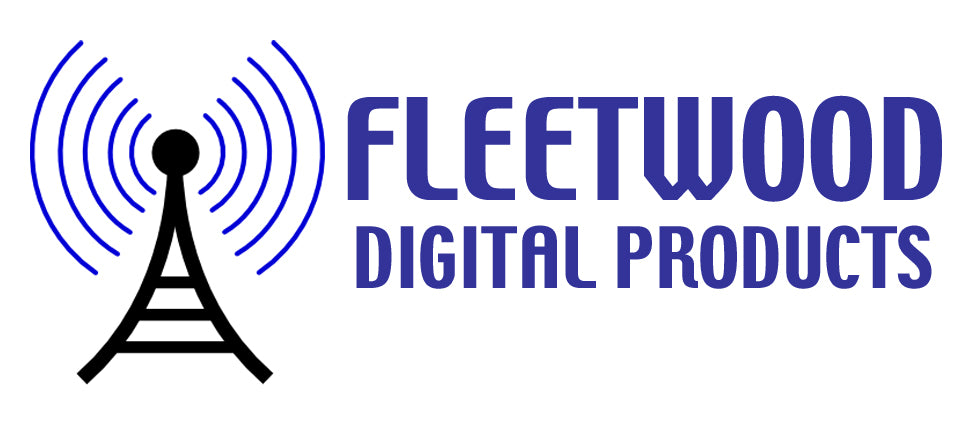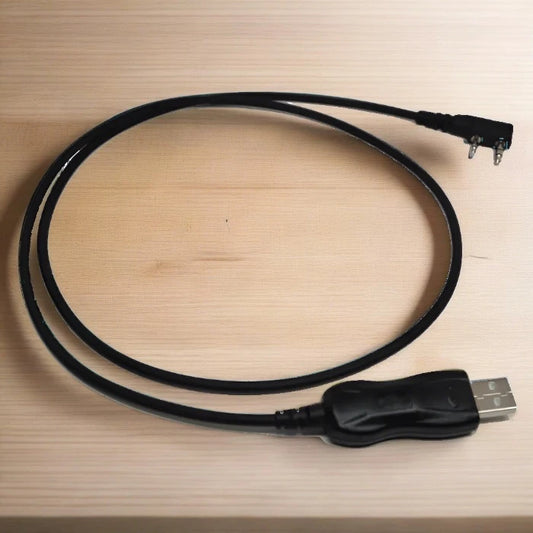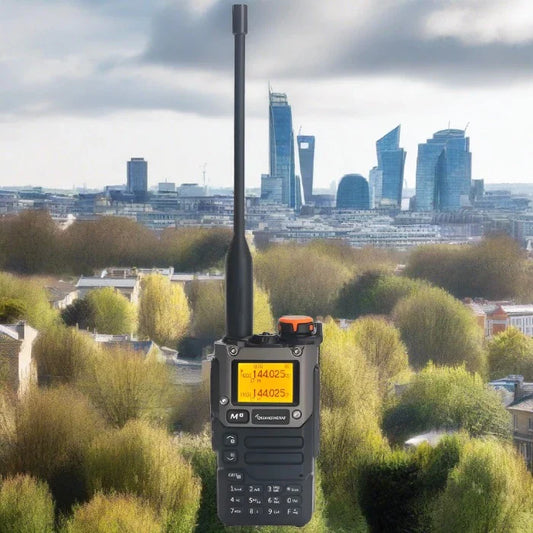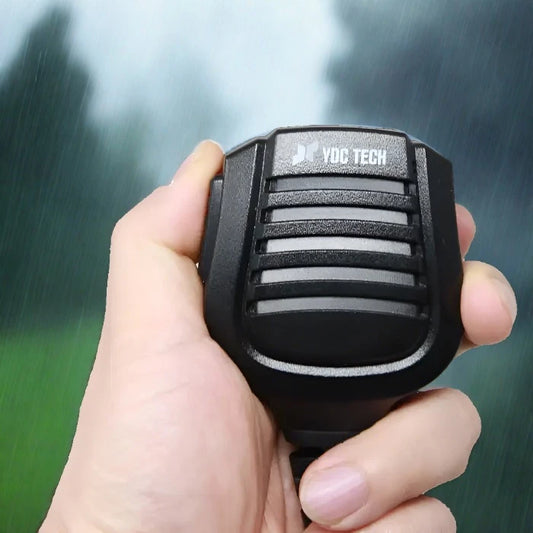I'm often asked what's the best radio for hunting. I always smile on the inside and think, "I've never heard anyone bagging game with a radio" :)
You see as much as the use is important, the service the radio is being used in often makes the biggest difference when it comes to whats the best radio. For example, if purchasing a radio for your motor boat you will want a VHF Marine Radio, and not a VHF Land Mobile Radio, but if looking for radios for family camping and hiking, the VHF Land Mobile radio is not the best choice, the FRS/GMRS radio will be more suited for you.
Read on for a better idea of the different types of radios, and which one is the best for the given scenario.
GMRS is ideal for a group that doesn’t need to communicate with others. Think of a family on a hike, friends camping, or employees at a business. For communications with the logging trucks you will need what is called a VHF land mobile radio:
Fixed Mount are also available:
These radios also require a license to operate. https://www.fleetwooddp.com/pages/bc-logging-roads-resource-road-frequencies
The VHF Land Mobile equipment (as above) can also be used for the more serious individuals who want to setup a base station at the camp or trailer, and be in contact with portable handhelds around camp. Do keep in mind that besides the hardware you will also require things like an Antenna, Mount and Coax. You will want you to obtain a license to use the equipment, on a per radio basis. 3 radios = 3 licenses. You must have the license before the radio can be programmed and deployed.
If this is a little more radio than you need, and you are willing to forgo communicating with the trucks, then License Free GMRS will allow you to operate without a license, and may provide compatibility with a wider range of consumer radios, for example the ones that you find at retailers like Canadian Tire and Best Buy. Two types of License Free radios exist, the FRS/GMRS combo radios, and strictly FRS radios. For families on a hike or camping a FRS radio is often sufficient. For business the GMRS offers 2W of power and is more suitable for a large farm, school campus, or small warehouse.
FRS / GMRS radios also have an advantage in that they do not require programming, they function straight out of the box. The disadvantage is these radios are often lesser quality and range due to their low cost and targeted towards consumer use.
BC has standardized on whats known as the Resource Road channels (RRs) and while some may use legacy channels, the RRs are the new “standard” for back country logging roads.For “convoying” you will need to ensure that all parties have the same radio service. In Western Canada the more popular form of communications between trucks is VHF land mobile, similar to the RRs, just a different frequency. When I program radios for the RRs I also include the “LADD” channels. These are 10 channels considered for open use in Western Canada. In the US and back east, CB radio is still a popular method for communicating between trucks, CB is not compatible with VHF.
FRS radios are common in Canada/USA, and are commonly used on land, but not good for convoying as the vehicle acts as an insulator and the signal will not go very far at all. These are more suited for families camping and hiking. Dedicated GMRS radios have yet to catch on in Canada with the masses. While GMRS does have some compatibility with FRS it is still not widely used in a convoy situation. For example a family in their RV will probably have a ham radio or a CB radio before a FRS radio for chatting with others while on the road.
Ham radio is another facet all together. Not used in the commercial world, and more of a hobby. All operators in the convoy would have to have a ham license. Amateur Ham Radio does have the advantage of radios with higher power, broader antenna options, and excellent range. But come at a higher learning curve. Radio Amateurs of Canada is a good place for more information if this is the right radio service for you.If you always travel with the same group of friends I would recommend coming to an agreement on which radio service to use.
No one radio will be an all size fits all. If the end result is you want to convoy, and be able to call for help on roads in Western Canada that are active with truckers, go with VHF land mobile. A yearly license is required, but no training.If you can convince your friends to spare two weekends getting a ham license will be the next best for communicating in both the convoy, and when on foot. Also almost all communities have an active ham radio club. You can call for help or assistance, but the question is will an operator have the radio on when you need them? The license is a one time fee, good for life.
If that is not possible consider the GMRS approach. No license required, but expect a much shorter range.If the cost of Land Mobile and the license requirements of Amateur Radio are a blocker, but you still want to possibly be able to reach out to a trucker for help on a major highway (not back country or logging roads) consider CB radio. You will still be able to convoy amongst your friends, and while not popular, CB still have a bit of use in trucks in Western Canada. (Just no where near as popular as VHF) The other advantage of CB is it does not require a license. You do risk getting squished on logging roads as the trucks do not call out their KMs on CB.As you can see a very complex world radio can be.
I find the best way to start is to define who you want to communicate with, and then amongst your friends come to an agreement, and all buy a radio compatible with the same service. CB / FRS / GMRS / VHF Land Mobile / HAM









